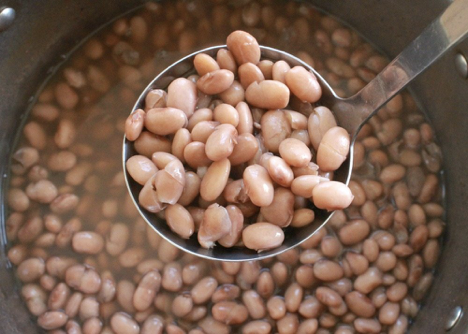
Nutritionally, canned and dry beans are the same. Getty Images Is there a difference between canned and dried beans? If you’re new to eating a lot of fiber, start incorporating it gradually into your diet and drink plenty of water to avoid discomfort. probiotics) in your gut and helps them thrive. Beans actually contain resistant starch that feeds the good bacterium (a.k.a. However, the more you regularly you incorporate beans into your daily meals and snacks, the less gas you'll experience. The main reason why most of us feel gassy after eating beans is because we don’t normally eat that much fiber all in one sitting, making it a tad, er, surprising to your GI tract! The combo of plant-based protein and fiber can help slow the glycemic response to any meal, so people with diabetes will experience fewer spikes and crashes in blood sugar and maintain tighter glycemic control.Įven if you're not diabetic, swapping starches and refined grains for these complex carbs will help you maintain steadier energy levels. Eating 1/2 cup of beans every day will help you meet your weekly goal. Dietary Guidelines for Americans recommends eating 3 cups of legumes or beans per week.

One of the commonalities between “blue zones” - the places on Earth where people live the longest - is the consumption of beans.įor this reason, the U.S. Plus, buying dry beans is extremely cost-effective compared to relying on chicken, beef, or fish.Įating black beans as part of a balanced diet can decrease your risk of diabetes, heart disease, and some cancers. Dietary Guidelines for Americans counts black beans as both a vegetable and a protein - double duty! Beans provide some of the most protein compared to other plant-based foods. Get the low-down on your other questions about black beans below: Are black beans a good source of protein? Healthier blood pressure levels: The potassium in black beans can help improve your numbers.Protection for your bones: The magnesium in black beans plays a role in over 300 enzymatic reactions in the body including metabolism, and it's key for bone health as well.Lower "bad" cholesterol levels: Eating adequate fiber (at least 25 to 35 grams per day) can help decrease LDL cholesterol levels and reduce your risk of heart disease.Less constipation and bloating: The fiber helps you stay regular.Here are just a few other benefits that come with eating black beans:

Besides protein, black beans provide lots of soluble and insoluble fiber - both of which can decrease your risk of many chronic diseases and help you stay fuller, longer.


 0 kommentar(er)
0 kommentar(er)
